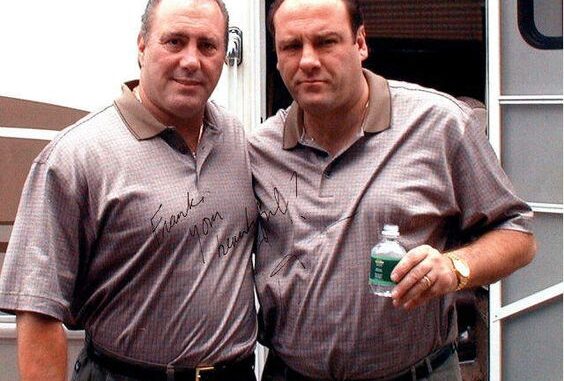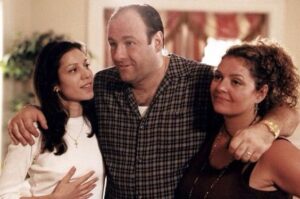
The Sopranos Creator Addresses TV Shows Getting ‘Dumbed Down’ for Modern Audiences
As television evolves, so does its audience. But according to The Sopranos creator, David Chase, something crucial is being lost in the process. In a recent interview, Chase shared his concerns about how modern TV shows are increasingly being “dumbed down” to cater to what is perceived as a less engaged audience. This thought-provoking commentary raises important questions about the future of television, the changing nature of storytelling, and the challenges creators face in crafting complex, thoughtful narratives.
In this article, we’ll delve into David Chase’s concerns about modern TV programming, explore the impact of audience expectations, and discuss how The Sopranos set the gold standard for high-quality storytelling. Let’s unpack what it means when the creator of one of the greatest TV shows of all time speaks out about the state of modern entertainment.
H1: The Dumbing Down of Television: What Does David Chase Mean?
David Chase, the mind behind The Sopranos, has always been known for pushing boundaries in storytelling. With a rich narrative, deep character development, and explorations of difficult, often controversial topics, The Sopranos challenged audiences to think critically about its themes. But in recent years, Chase has expressed frustration with the trend of simplifying shows to appeal to wider, less demanding audiences.

H2: The Evolution of TV Content: Where Did It Go Wrong?
At the heart of Chase’s comments is the idea that TV shows today often rely on easily digestible content, sacrificing the intellectual and emotional complexity that characterized earlier works. According to Chase, networks and streaming platforms are increasingly prioritizing quick entertainment over deeper, more thought-provoking narratives.
H3: Are TV Shows Losing Their Depth?
Chase’s concerns stem from the rise of binge-watching culture, which often places pressure on creators to deliver fast-paced, easily consumable stories that fit within a formula. Shows are designed to be watched in one sitting, leaving little room for the nuanced, slow-burn storytelling that The Sopranos became famous for.
H2: The Rise of the “Snackable” Show: Why Instant Gratification is Hurting Storytelling
In the age of streaming services like Netflix, Amazon Prime, and Hulu, there’s a growing trend toward content that’s quick, easy, and accessible. These platforms thrive on high-volume production schedules, which means creating a steady stream of content that doesn’t require viewers to engage too deeply.
H3: Binge-Watching vs. Slow-Burn Storytelling
Chase has pointed out how binge-watching has fundamentally altered how shows are created and consumed. While binge-watching can be a great way to engage with a series, it often leads to shows that are more formulaic and less thoughtful. In the case of The Sopranos, its slow-burn plotlines, such as Tony Soprano’s therapy sessions or his complex family dynamics, demanded that viewers take their time and invest emotionally. Today’s shows, by contrast, are frequently structured to keep the viewer engaged with cliffhangers and constant action—leading to content that may entertain but lacks long-lasting impact.
H4: Audience Expectations and Instant Gratification
Another factor in the “dumbing down” of TV shows is the pressure to meet the instant gratification demands of modern audiences. With social media platforms allowing audiences to share their opinions instantly, the feedback loop has become more immediate than ever. Creators often feel the need to cater to viewer preferences, shortening story arcs and simplifying plotlines to keep audiences hooked. The result? Shows that deliver entertainment without requiring viewers to truly reflect on the material.
H2: The Rise of the Antihero and Complex Characters: A Standard Set by The Sopranos
One of the reasons The Sopranos resonated so strongly with audiences was its portrayal of morally complex characters. Tony Soprano, portrayed by James Gandolfini, was a mob boss who navigated the intricacies of family life while engaging in illegal activities. This duality made him fascinating—he was neither entirely good nor entirely evil, but a character defined by contradictions.
H3: Breaking the Mold of Traditional TV Characters
In the world of traditional TV, characters were typically either heroes or villains. However, The Sopranos broke this mold by presenting Tony as an antihero, a character who is deeply flawed but still capable of moments of vulnerability and tenderness. Chase created a world where characters were more than just archetypes—they were fully developed individuals with depth, struggles, and contradictions.
H4: The Shift Toward Simpler Characters in Modern TV
Today, however, there’s been a noticeable shift in the portrayal of characters. Many modern TV shows rely on stereotypical characters that are either purely good or purely bad. Antiheroes like Tony Soprano are few and far between, replaced by characters who often feel one-dimensional or easily categorized. As Chase has noted, these changes reflect a broader trend toward simplicity in storytelling.
H2: The Importance of Subtlety in Modern TV Shows
Another hallmark of The Sopranos was its ability to weave subtle themes and meanings into the narrative. David Chase didn’t spoon-feed audiences; instead, he trusted them to pick up on nuanced details, symbolism, and character development.
H3: What Happens When TV Shows Over-Explain?
In contrast to The Sopranos’ approach, many modern TV shows tend to over-explain things. Characters state their motivations outright, and the plotlines are often simplified to the point where there’s little room for interpretation. While this style may be more accessible to a broad audience, it also diminishes the potential for deeper engagement with the material. Chase argues that this over-explanation “dumbs down” the content, making it less challenging and ultimately less rewarding for viewers.
H2: The Role of Streaming Services in Changing TV Content
Streaming platforms have played a significant role in changing the way TV shows are made and consumed. While these platforms have enabled creators to reach a wider audience, they have also contributed to the trend of simplifying content.
H3: How Algorithms Influence TV Show Creation
Streaming services rely heavily on algorithms to recommend shows to viewers, often based on previous viewing habits. This creates a cycle where content is designed to meet the demands of the algorithm rather than fostering creative risk-taking. The result? Shows that prioritize mass appeal and easy storytelling over unique, innovative narratives.
H4: The Pressure to Produce “More” Content
The streaming model also incentivizes quantity over quality. With the need to continually release new content, creators face pressure to produce shows quickly, often at the expense of depth and complexity. The focus shifts from crafting a well-rounded story to meeting a production schedule, which can lead to shows that feel rushed or underdeveloped.
H2: Is There Hope for TV?
Despite these challenges, David Chase’s comments offer a glimmer of hope. He remains a staunch advocate for quality storytelling and believes that there are still creators out there willing to take risks and push the boundaries of television. Shows like Succession, Breaking Bad, and The Crown continue to prove that there is an audience for thoughtful, intricate narratives.
H3: The Resilience of High-Quality TV Shows
Although many shows may seem “dumbed down,” there’s a growing demand for high-quality, thought-provoking television. As streaming services and networks recognize that audiences are craving substance, there may be a resurgence of shows that prioritize depth over speed.
Conclusion: The Future of Television
David Chase’s commentary on the “dumbing down” of TV is an important conversation about the future of entertainment. While modern audiences may demand faster, more accessible content, there’s still a place for shows that challenge viewers intellectually and emotionally. The key is finding a balance between entertainment and substance. If The Sopranos taught us anything, it’s that television can be both a source of entertainment and a mirror to society, offering more than just a fleeting moment of distraction.
FAQs
1. Why does David Chase think modern TV shows are getting “dumbed down”? David Chase believes that TV shows today prioritize fast-paced, easily consumable content to meet the demands of modern audiences, sacrificing depth and complexity in the process.
2. How did The Sopranos change TV storytelling? The Sopranos revolutionized TV by introducing morally complex characters and slow-burn narratives, encouraging viewers to engage with the material on a deeper level.
3. What is the impact of binge-watching on TV shows? Binge-watching has led to a trend of faster-paced, formulaic shows that are designed to be consumed quickly, rather than allowing for the slow development of complex storylines and characters.
4. Are there any modern TV shows that still prioritize quality? Yes, shows like Succession, Breaking Bad, and The Crown continue to prioritize thoughtful storytelling and complex